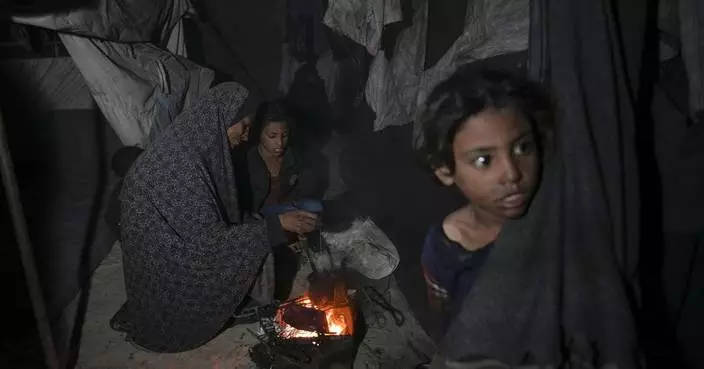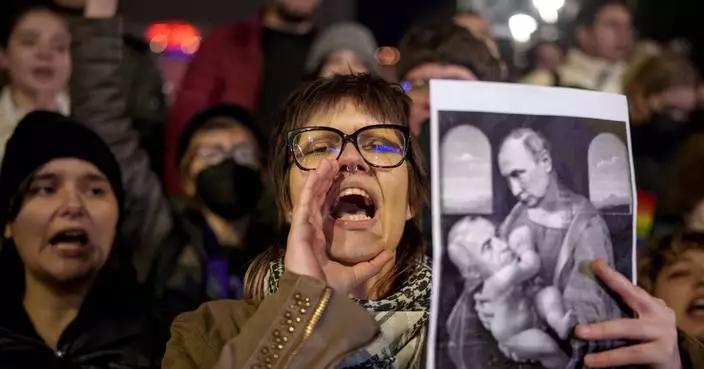NEW DELHI (AP) — Indian tycoon Gautam Adani said his conglomerate is committed to “world-class regulatory compliance” after being indicted in the U.S. on fraud charges and an alleged bribery scheme worth millions of dollars, his first remarks since the accusations surfaced.
Adani, 62, is one of Asia’s richest men and perceived as close to Prime Minister Narendra Mo di. He was thrust into the spotlight on Nov. 20 when U.S. prosecutors in New York charged him and seven of his associates with securities fraud, conspiracy to commit securities fraud, and wire fraud, as well as duping investors by concealing that his company’s huge solar energy project on the subcontinent was being facilitated by bribes.
They were accused of allegedly paying or planning to pay about $265 million in bribes to government officials to help secure contracts and financing amounting to billions of dollars.
“This is not the first time we have faced such challenges. What I can tell you is that every attack makes us stronger. And every obstacle becomes a stepping stone for a more resilient Adani Group,” Adani said late Saturday at an awards ceremony in the northern Indian city of Jaipur.
The businessman said roadblocks his group faces are “the price of pioneering.”
“The more bold your dreams, the more the world will scrutinize you,” he said. “In today’s world negativity spreads faster than facts. And as we work through the legal process, I want to reconfirm our absolute commitment to world-class regulatory compliance.”
The Adani Group, in a statement last week, said the allegations by the U.S. Department of Justice and the U.S. Securities and Exchange Commission against directors of Adani Green were baseless.
Adani’s imprint across India’s economy runs deep. His group is the country’s largest operator of coal mines and largest infrastructure developer, operating several ports and airports, and employing tens of thousands of people. Despite his fossil fuel roots, Adani has ambitions to become the world’s largest player in renewable energy by 2030.
Analysts say a key factor in his meteoric rise over the years has been his knack for aligning his group’s priorities with those of the Modi government. His critics accuse him of crony capitalism and gaining preferential treatment from the state which has facilitated him winning governmental contracts. The group has repeatedly denied the accusation.
The controversy has already affected Adani’s interests overseas.
Kenya’s president on Nov. 21 canceled multimillion-dollar deals with the Adani Group for airport modernization and energy projects.
A Sri Lankan government spokesperson said earlier this week that it is reviewing projects to be implemented by the Adani Group in Sri Lanka. The group was set to invest over $440 million under a 20-year agreement to develop 484 megawatts of wind power in the northeastern regions of Sri Lanka and develop a terminal in the Colombo port.
Bangladesh’s interim government is also reviewing an agreement under which the Adani Group supplies electricity to Bangladesh from a power project in India.
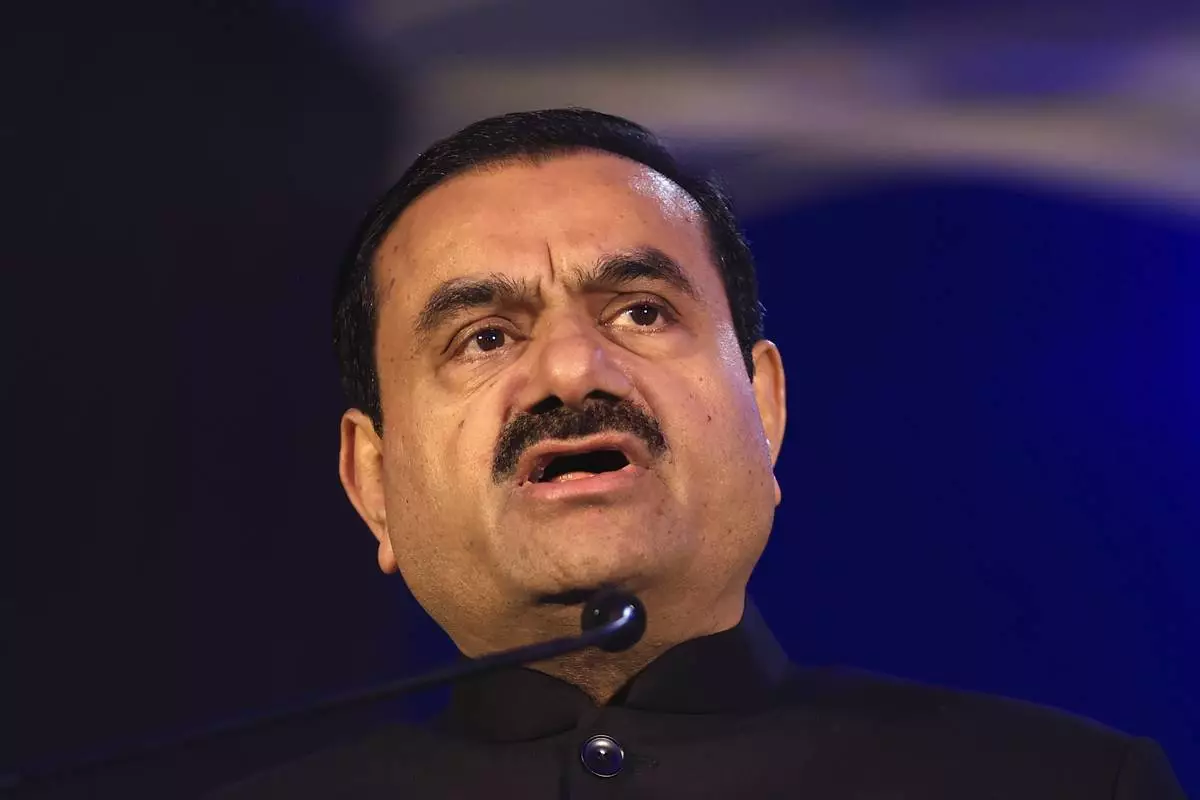
Indian billionaire and Chairman Adani Group, Gautam Adani speaks during 51st Gems and Jewelry awards function in Jaipur, India, Saturday, Nov. 30, 2024. (AP Photo)
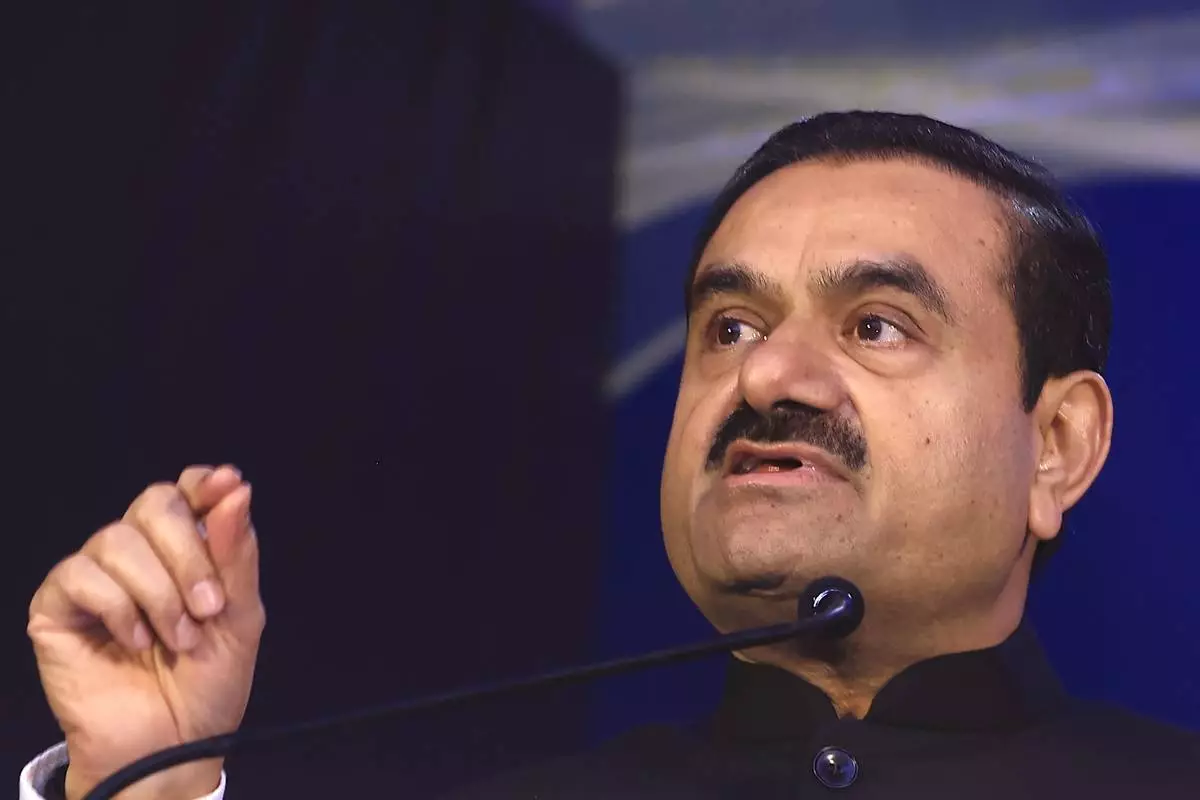
Indian billionaire and Chairman Adani Group, Gautam Adani presides over 51st Gems and Jewelry awards function in Jaipur, India, Saturday, Nov. 30, 2024. (AP Photo)
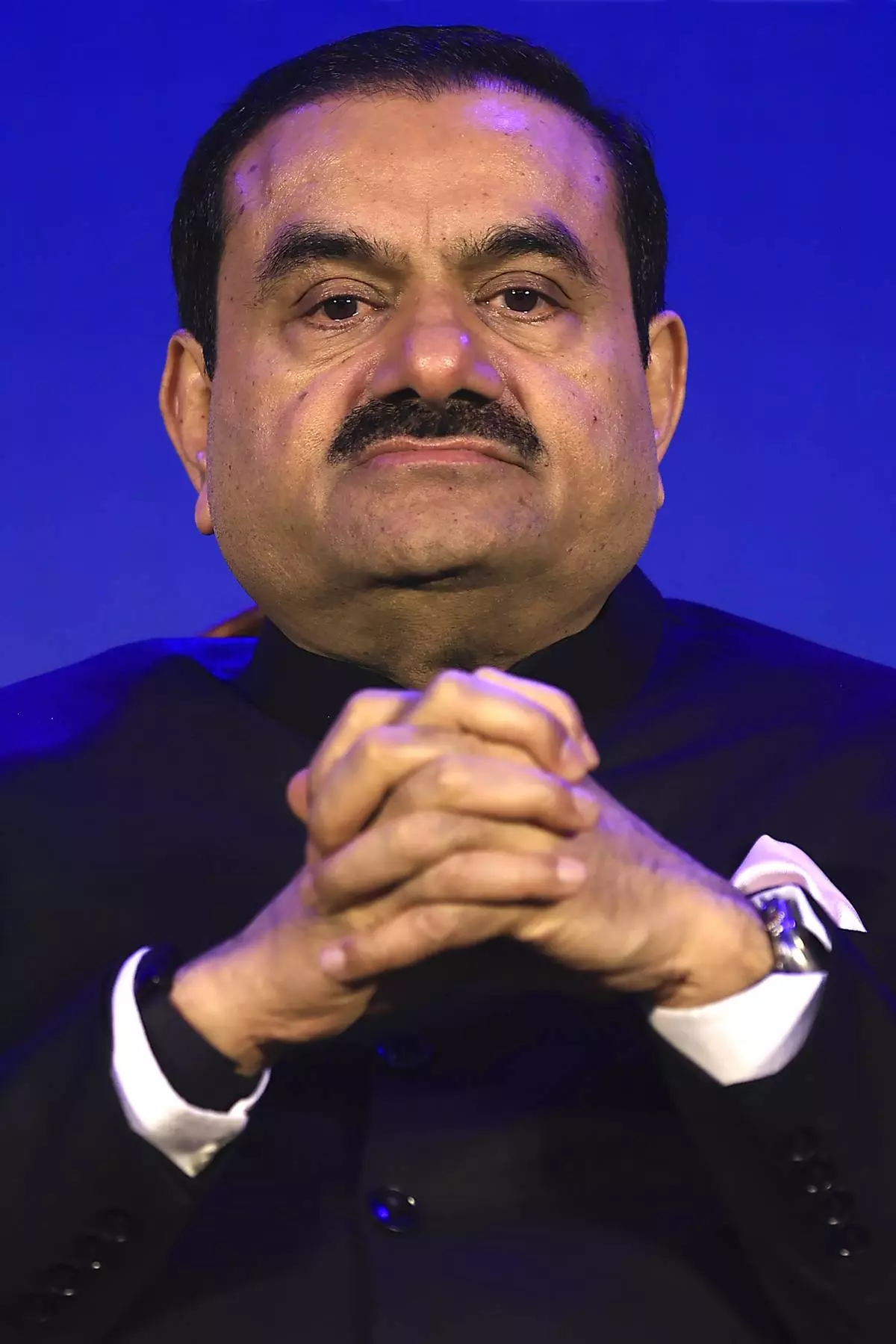
Indian billionaire and Chairman Adani Group, Gautam Adani presides over 51st Gems and Jewelry awards function in Jaipur, India, Saturday, Nov. 30, 2024. (AP Photo)
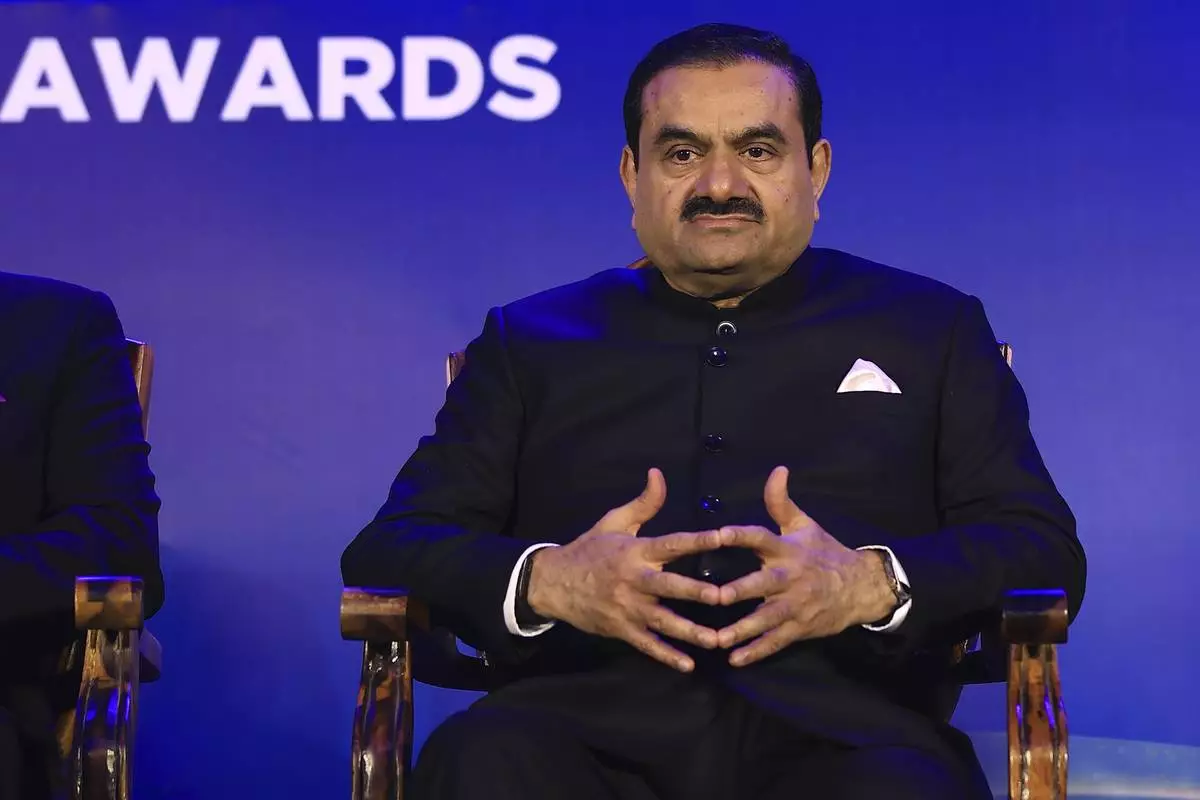
Indian billionaire and Chairman Adani Group, Gautam Adani presides over 51st Gems and Jewelry awards function in Jaipur, India, Saturday, Nov. 30, 2024. (AP Photo)
THIAROYE-SUR-MER, Senegal (AP) — Biram Senghor regularly goes to pay his respects at a military cemetery in Thiaroye, a fishing village near Senegal’s capital Dakar, bowing in front of a different grave each time.
The 86-year-old has no way of knowing which grave belongs to his father, M’Bap Senghor, one of likely hundreds of West African riflemen who fought for France during World War II but were killed on Dec. 1, 1944 by the French army after demanding unpaid wages.
In this cemetery where they are supposedly buried, all the graves are anonymous and the exact location of the remains is unknown, as is the number of victims. The true scale and circumstances of the killings remain unclear as Senegal commemorates the 80th anniversary of the massacre on Sunday, threatening to reignite smoldering tensions between France and the former colony.
“I have been fighting to get answers for over 80 years,” says Biram Senghor. “(French President Emmanuel) Macron cannot do what the other French presidents before him did; France has to repent.”
The West Africans were members of the unit called “Tirailleurs Sénégalais,” a corps of colonial infantry in the French Army that fought in both World Wars. According to historians, there were disputes over unpaid wages in the days before the massacre and on Dec. 1, French troops turned on the unarmed African soldiers and shot them dead.
For decades, French authorities tried to minimize what had happened in Thiaroye. Reports by the French military shortly after the massacre determined that 35 West African soldiers were killed in response to a “mutiny.” Other reports by the French army mention 70 deaths.
But today, many French and Senegalese historians agree the true death toll is likely in the hundreds, with some speaking of almost 400 soldiers killed, based on estimates of the number of riflemen present at the camp on the day of the massacre.
On Thursday, Macron officially recognized the events of Thiaroye as a massacre for the first time in a letter to Senegal’s President Diomaye Faye, which was seen by The Associated Press.
“France must recognize that on that day, the confrontation between soldiers and riflemen who demanded their full legitimate wages be paid, triggered a chain of events that resulted in a massacre,” read Macron’s letter.
But many historians dispute the idea of a confrontation between the French soldiers and the riflemen.
“What happened on December 1st was the execution of unarmed soldiers,” says Martin Mourre, a French historian and author of Thiaroye 1944, History and Memory of a Colonial Massacre.
He points to the fact that no weapons were mentioned during the trial of the African riflemen accused of mutiny and the absence of any injuries among the French soldiers as evidence that no confrontation took place.
In his letter to the Senegalese president, Macron did not mention the number of soldiers killed.
The controversies and unknowns about the massacre are in part due to a lack of transparency by French authorities regarding the military reports and testimonies.
In 2014, French President Francois Hollande handed over the European nation’s archives on Thiaroye to Macky Sall, then-president of Senegal.
But historians say that key documents, including ones indicating the site of the mass graves and the number of West African soldiers present at the camp on the day of the massacre, are still missing. It is unclear if France holds such archives or if they even exist.
Macron’s office and the French foreign ministry did not respond to requests for comment.
Additionally, very little was done by the Senegalese authorities under former president Sall to allow historians to delve into the historical documents.
“The archives remained inaccessible until this year, for obscure reasons,” says Mourre.
Mamadou Diouf, a Senegalese historian who heads the commemoration committee for the Thiaroye massacre this year, says Sall did not show much interest in the subject in order to avoid diplomatic tensions with France.
But Senegal’s President Bassirou Diomaye Faye, who was elected in March in part on a promise of redefining Senegal’s relationship with the former colonizer, has vowed to regain control of the historical narrative on Thiaroye.
His administration has organized major commemorations of the massacre from Dec. 1 to April 2025 across the country.
“The authorities' goal behind the major commemorations is to make Thiaroye part of Senegal’s national story,” says Babacar Ndiaye, political analyst at the Wathi think tank, which focuses on political and economic issues in West Africa.
“It will be talked about a lot on television, in the press and most importantly on social media,” he adds. “This will reach a younger audience who might know little about the events of Thiaroye.”
The 80th anniversary of the massacre comes as France’s influence is declining in the region, with Paris losing its sway in its former West African colonies.
French troops have been ousted in recent years from Niger, Mali and Burkina Faso after years of fighting Islamic extremists alongside regional troops. Earlier this week, Chad, one of the last countries in the region in which France had maintained a large military presence, ended a military cooperation agreement with Paris.
France still has around 350 troops in Senegal, mainly in a supportive role. Asked about their continued presence, Faye suggested it is not something the Senegalese would want.
“Historically, France enslaved, colonized and stayed here,” he said. “Obviously, I think that when you reverse the roles a little, you will have a hard time conceiving that another army — of China, Russia, Senegal, or any other country — could have a military base in France.”
Associated Press writer Sylvie Corbet in Paris, France, contributed to this report.
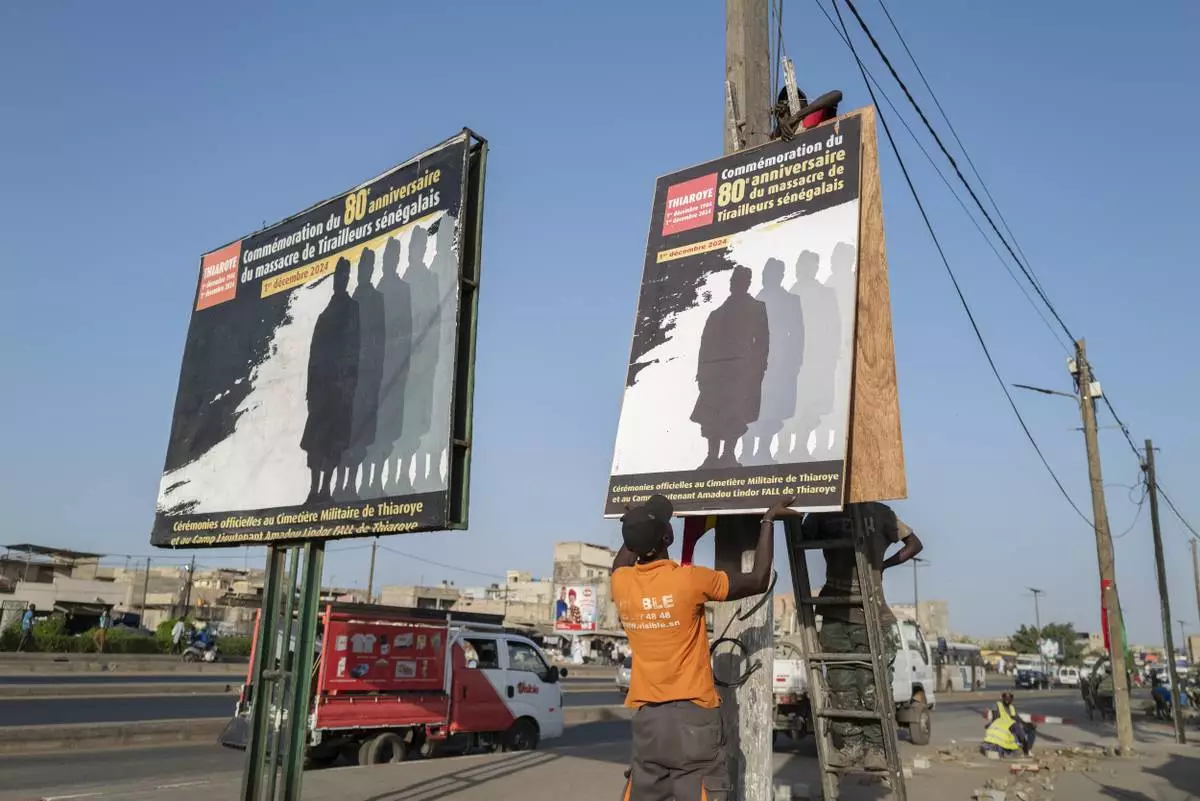
Workers put up a poster marking the 80th anniversary of the Thiaroye massacre Thiaroye, Senegal, Thursday, Nov. 28, 2024. (AP Photo/Sylvain Cherkaoui)
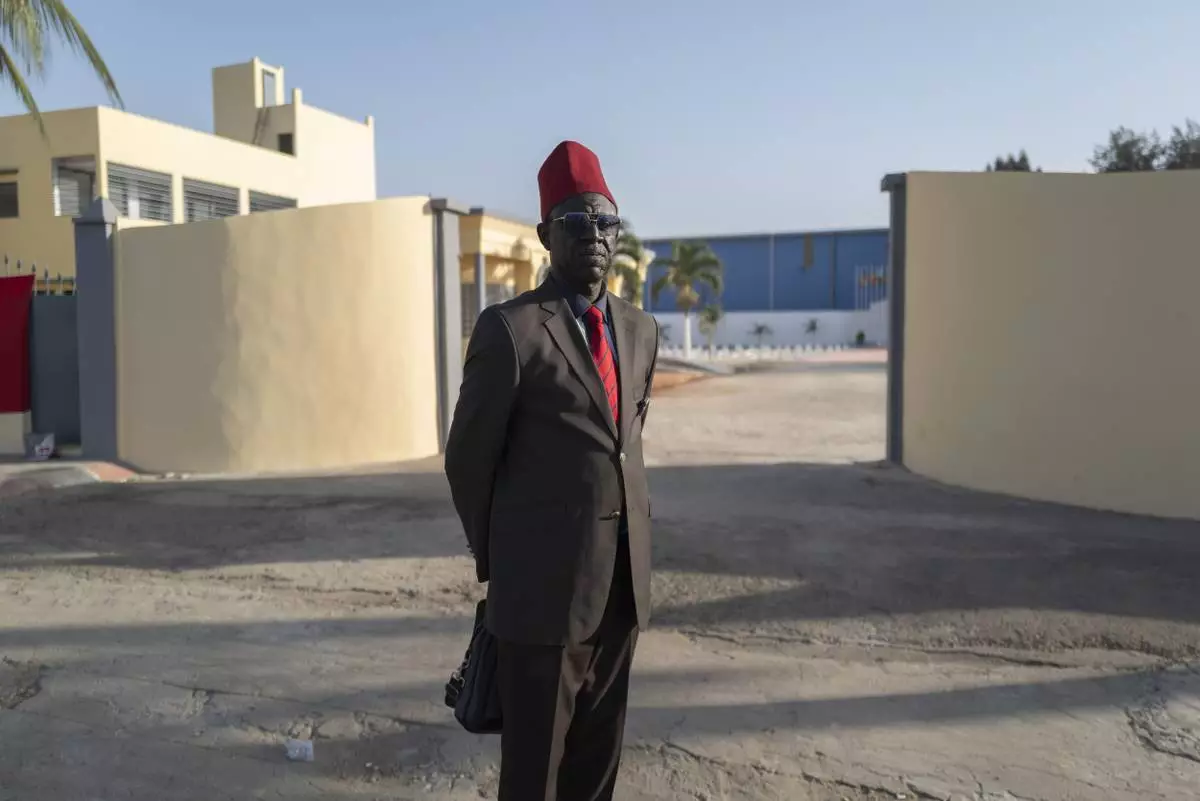
Thierno Birahim Gueye, president of the Federation of Associations of Descendants of Senegalese Tirailleurs in Africa, poses in front of the Thiaroye, Senegal, military cemetery Thursday, Nov. 28, 2024. (AP Photo/Sylvain Cherkaoui)
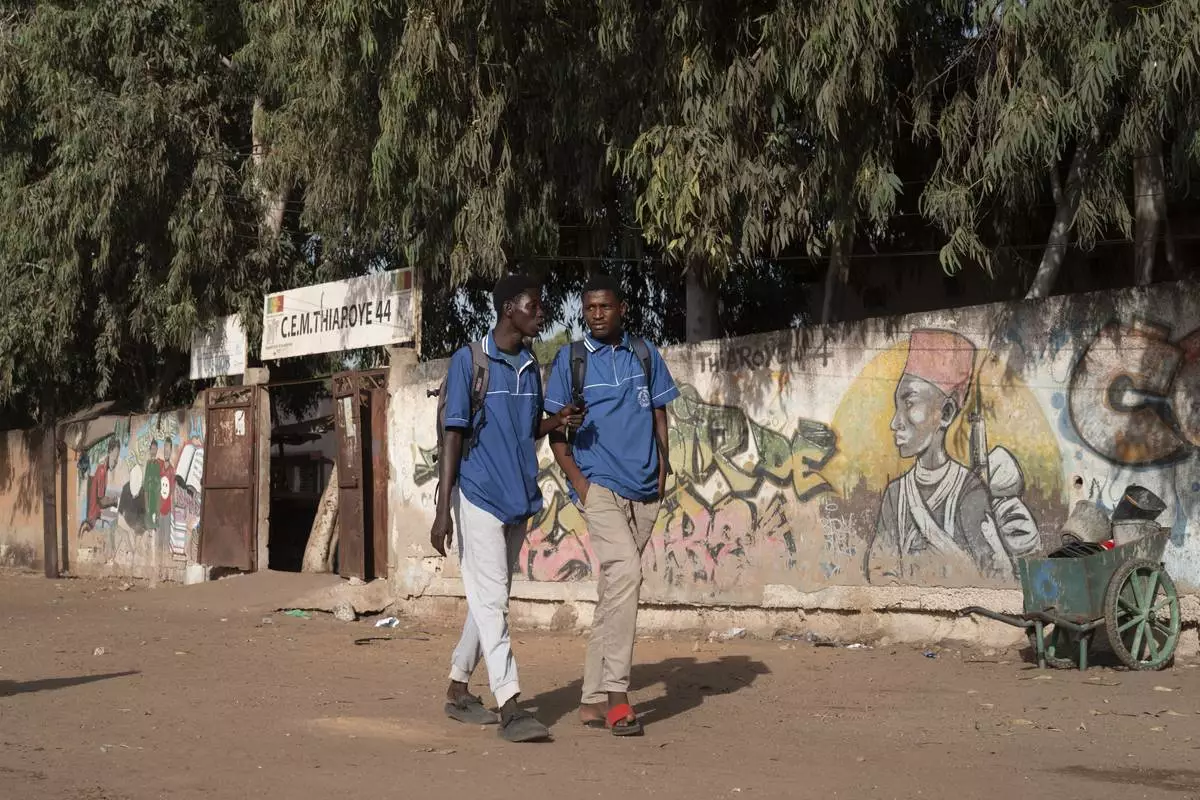
Students walk by the Thiaroye 44 college in Thiaroye, Senegal, Thursday, Nov. 28, 2024. (AP Photo/Sylvain Cherkaoui)
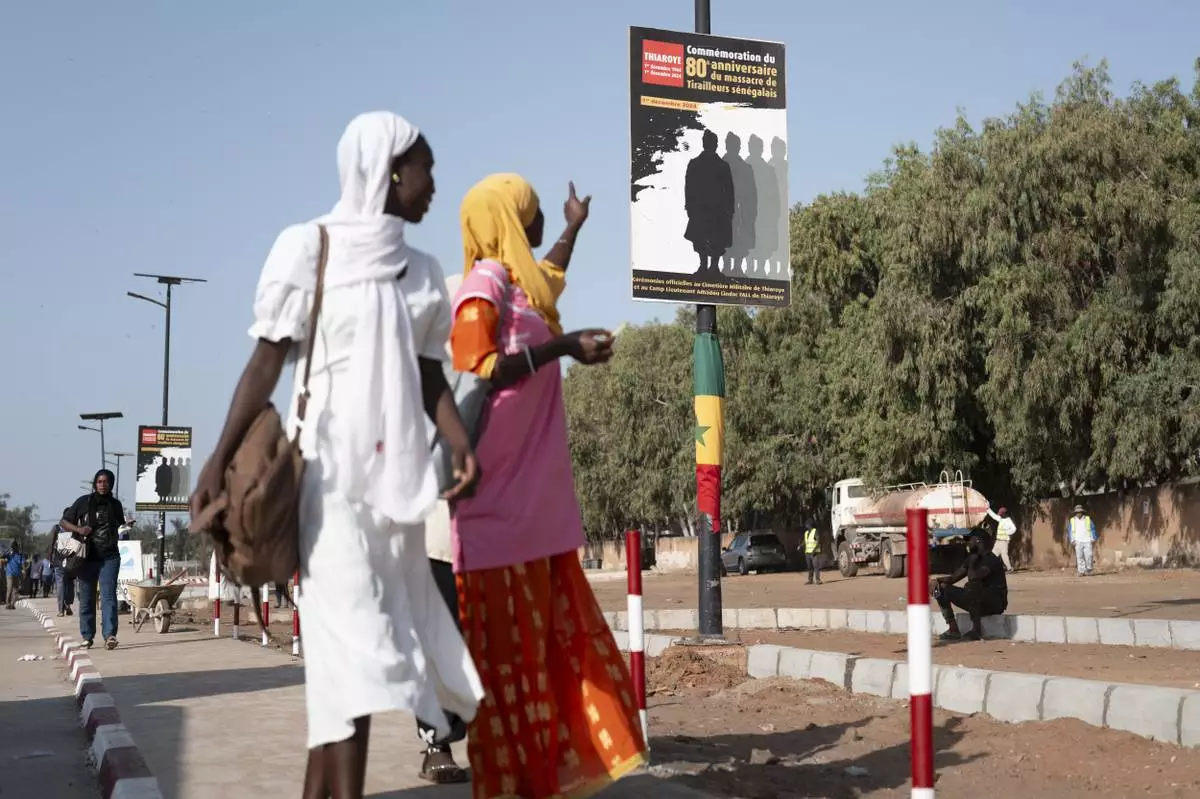
A student points at a poster marking the 80th anniversary of the Thiaroye massacre in Thiaroye, Senegal, Thursday, Nov. 28, 2024. (AP Photo/Sylvain Cherkaoui)
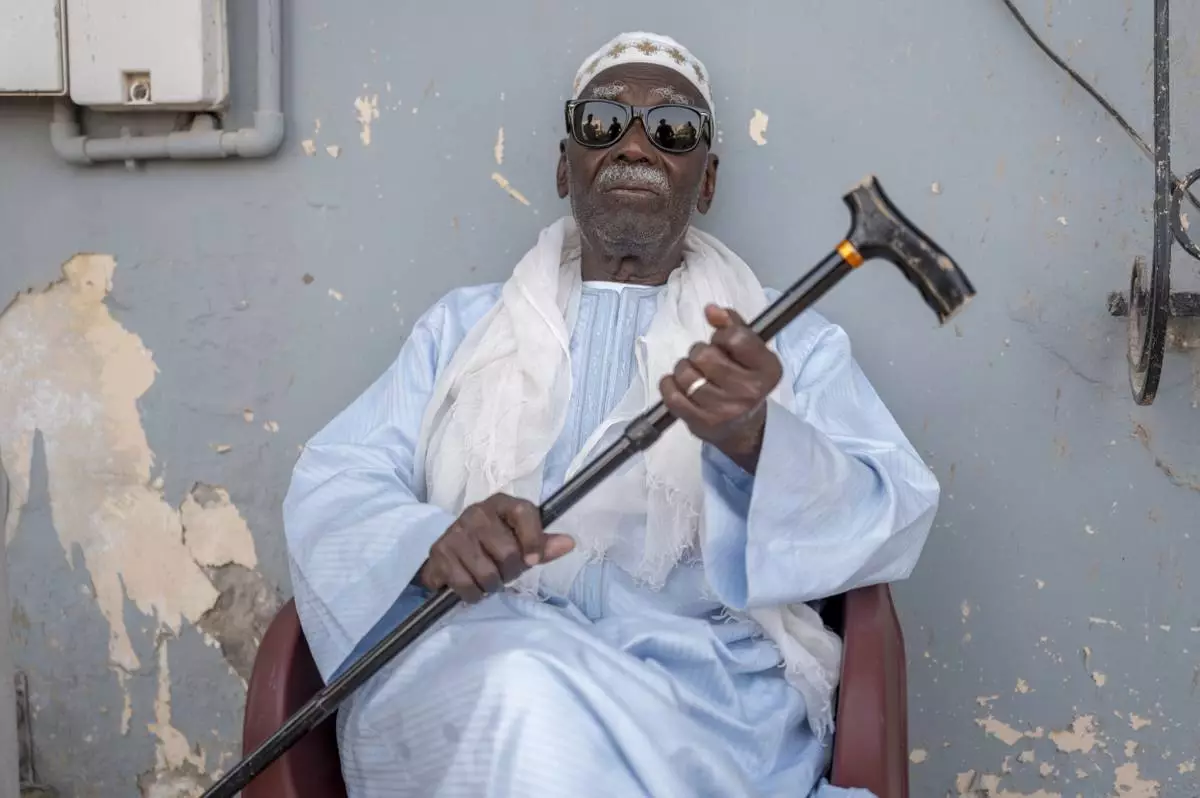
Biram Senghor, whose father Mbap was killed in 1944, poses at the entrance to his brother Amhet's house, in Rufisque, Senegal, Thursday, Nov. 28, 2024. (AP Photo/Sylvain Cherkaoui)
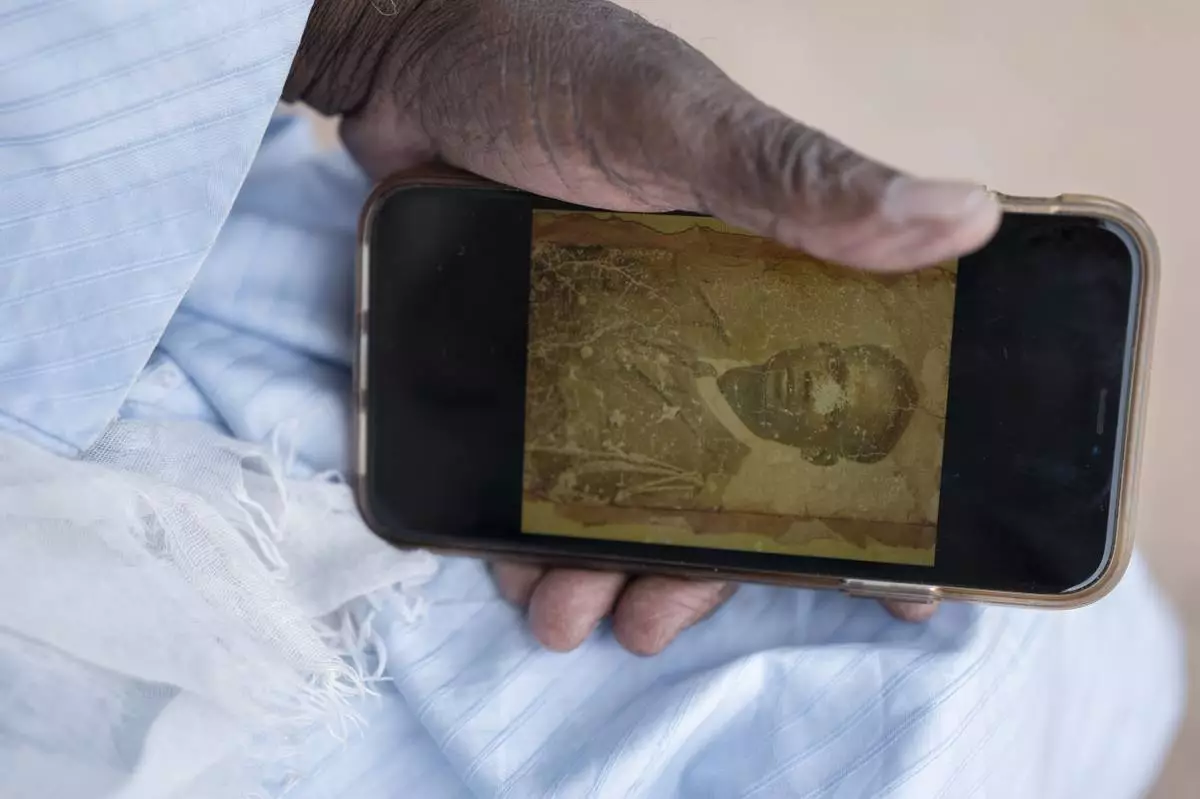
Biram Senghor, whose father was killed in 1944, holds a phone with a photo of his father, in Rufisque, Senegal, Thursday, Nov. 28, 2024. (AP Photo/Sylvain Cherkaoui)













